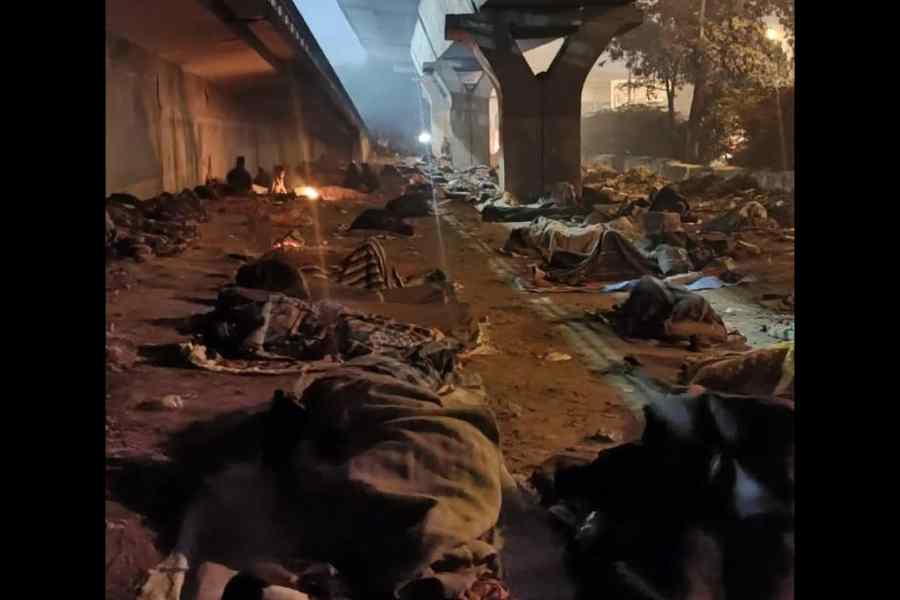As the summer sun cast its relentless heat on Delhi’s streets, a distressing scene unfolded beneath its bridges — a scene that resonates far beyond the confines of India’s capital. Across the length and the breadth of the nation, under bridges lie the forgotten souls of our society — the homeless people — seeking refuge amidst sweltering heat, dust storms and deluges.
According to the data from the ministry of housing and urban affairs, India’s homeless population is estimated to be around 1.77 million. However, the actual number is likely to be significantly different from the data recorded in the 2011 Census. Recent trends have indicated a decline in multidimensional poverty. However, the progress has been overshadowed by social inequality, unemployment, evictions, and natural disasters. The plight of the homeless serves as a stark reminder of the systemic failures that perpetuate poverty and inequality.
The challenges faced by the homeless are particularly acute during India’s scorching summer when the risks of heat stroke and dehydration are high. Homeless women, especially young women, are disproportionately affected by violence, trafficking and sexual exploitation. They also face severe obstacles in accessing healthcare and education.
Addressing homelessness demands a nationwide commitment to social justice and equity. It also requires niche policies that prioritise the needs of marginalsed communities so that they can break free from the vicious cycle of poverty and despair. This not only mandates the provision of shelters and support services but also substantial investments in affordable housing, healthcare, and education. A comprehensive approach targeting the root causes of homelessness along with greater collaboration among such stakeholders as government agencies, non-profit organisations, civil society, and the private sector is necessary. The multifaceted challenge that is homelessness can be addressed only through collective effort and the pooling of resources.
According to the Indian Constitution, the right to adequate housing is enshrined as a fundamental right, with Articles 14, 19, and 21 playing pivotal roles in safeguarding an individual’s dignity. Over the past few decades, India has made significant strides in addressing the plight of the homeless. Initiatives such as the Footpath Dwellers Night Shelter Scheme, introduced during the 8th Five Year Plan, marked a crucial step towards providing shelter to the vulnerable. Subsequent plans, including the recognition of the right to access housing as a fundamental right in the 11th Five Year Plan, underscored the government’s commitment to tackling homelessness. The Jawaharlal Nehru National Urban Renewal Mission, followed by the Atal Mission for Rejuvenation and Urban Transformation and the National Urban Livelihood Mission, have aimed to enhance shelter infrastructure and accessibility. The National Shelter Policy offers vital amenities and advocates rights for the urban homeless. However, while shelters have improved conditions for many, they are not a panacea. The Supreme Court’s directive for one shelter for every 100 people in populous areas highlights the urgency of the issue.
India has taken great strides in recent years in terms of economic growth and development. But true progress cannot be measured by GDP alone; it must also be measured by the well-being and the dignity of all its citizens. As we strive to build a brighter future for our nation, let us not forget those who have been left behind — those who seek shelter under bridges and in the shadows of our progress.
Amal Chandra is a policy analyst










